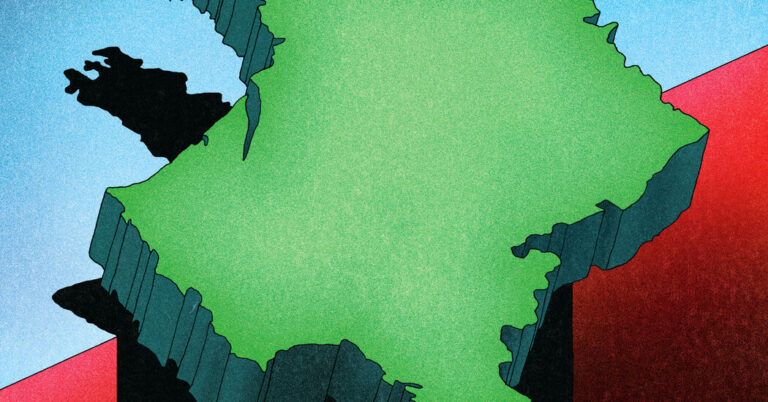They answered the call, especially left-wing voters. According to a poll, in the duels between Mr Macron’s allies and the conservatives, the National Rally, seven out of ten leftists Voters voted for the anti-Le Pen candidate, with most of the others abstaining. The front fared less well in the duels between the left and Ms Le Pen’s party: about half of Mr Macron’s supporters backed the left, and one in six voted for the far right. The result, however, was striking. Seat after seat, the far right’s strong position was not enough to defeat its combined opponents.
The strength of this mobilization is particularly remarkable given the conflicting messages from government officials. In the days following the first round, the president’s camp was divided between those who called for voting for any anti-Le Pen candidate and those who refused to stand down in favor of Jean-Luc Mélenchon’s France Insoumise, the largest and most radical force on the left. center–RIGHT called on voters to block both Mr Mélenchon and Ms Le Pen, undermining the idea that the main issue was stopping the far right.
The New Popular Front is far from united. Mr. Mélenchon, who does not sit in parliament, has a tumultuous relationship with the center-left Socialists and Greens, as well as the Communists, all of whom will want to prevent him from taking the party’s leadership. On Sunday night, centre-left figures In this camp, supporters of the new Popular Front, which has barely had time to enjoy its success, have nodded in favor of a broader dialogue and a change in political culture, already hinting at a rapprochement with Mr. Macron and a break with the most radical left. The New Popular Front, which has had only a few moments to enjoy its success, could soon begin to fragment.
But the problem is not limited to party infighting. While the far right has been stopped – as it has been in France – it has nevertheless made significant progress. Historically, the party has fared poorly in legislative elections because of its weak local roots: in recent decades, it had only a handful of MPs. Today, it has 143, a record high. It will enter the 2027 presidential election with a much stronger starting position, particularly by expanding its support to the majority right-wing electorate.
This support is considerable. Since 2022, the National Rally, which has long had a solid base among workers, has almost double His support among office workers, so-called mid-level professionals and senior executives. His vote still leans toward the lower-income and less-educated, but it is growing faster among those earning more than €3,000 a month. His most recent message, summed up by Mr. Bardella’s offer of ” restore order in public accounts, as well as in the streets” — resonates with homeowners and people with middle-income jobs. The party’s rise does not come from a working-class revolt, as some claim. to see herbut with the support of an increasingly large part of French society.


